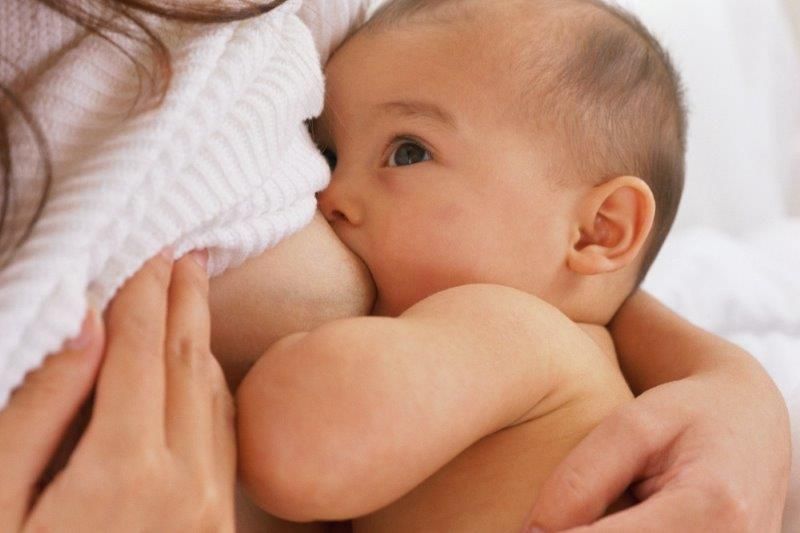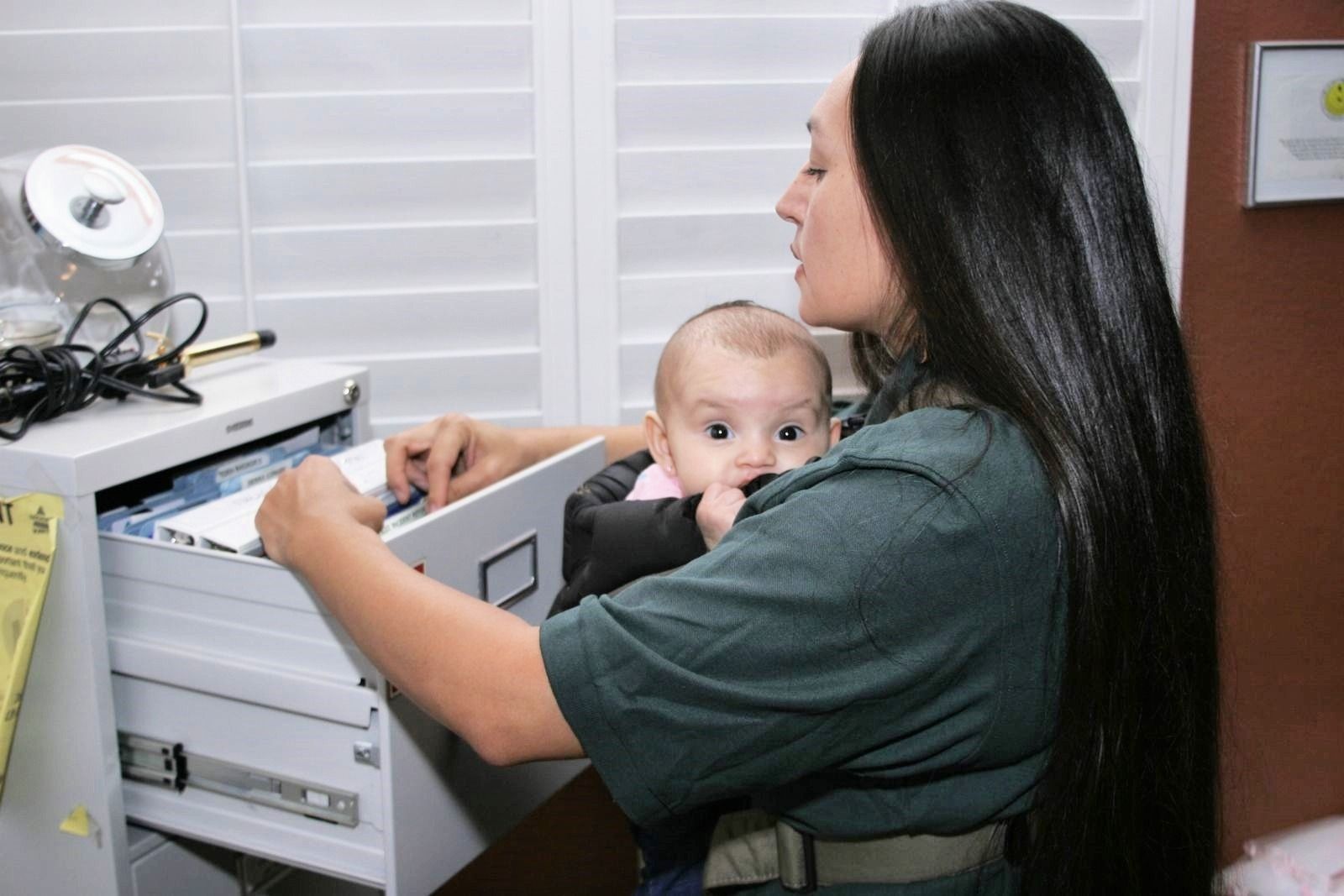Breastfeeding Myths
People often like to share information they have heard about pregnancy, birth and breastfeeding, but sometimes those messages are not accurate! Breastfeeding and lactation are different for everyone. Let’s bust some myths about breastfeeding and human milk.
Breastfeeding Myths
People often like to share information they have heard about pregnancy, birth and breastfeeding, but sometimes those messages are not accurate! Breastfeeding and lactation are different for everyone. Let’s bust some myths about breastfeeding and human milk.
MYTH: Formula is just as good as human milk.
FACT: Breast milk is far better and has nutrients, antibodies and other ingredients that are uniquely suited to the physical and mental development of the human baby. These ingredients cannot be copied. Human milk changes during a feeding and as baby grows to meet baby’s changing needs.
MYTH: Breastfeeding is going to hurt.
FACT: Breastfeeding is not supposed to be painful, but your breasts and nipples may feel sore and tender for a few days while your body adjusts to nursing. If you feel any pain or discomfort, get help from a lactation consultant or counselor to guide you and your baby through comfortable latching and breastfeeding positions. Visit our Beginning Breastfeeding page for more information on getting breastfeeding off to a good start. For more informatin on proper latching techniques, view this video: Attaching Your Baby at the Breast - Video - Global Health Media Project and Steps.
MYTH: I won’t have enough milk for the baby in the first few days.
FACT: Your first milk, called colostrum or “liquid gold,” is ready as soon as the baby is born and for the first few days. It is high in the first nutrients the baby needs and helps protect your newborn from illness. It is available in small amounts, that are right for your newborn's tiny tummy. Breastfeeding every time your baby is hungry will help to ensure your baby is getting enough and will also build your milk supply.
MYTH: Breastfeeding will make it hard for Dad and family members to bond with the baby.
FACT: You and your baby need everyone’s love and support. Dad and family can bond with the baby by burping, bathing, talking to and playing with baby, and holding the baby, especially skin to skin. Once breastfeeding is going well (around four weeks postpartum), you may choose to pump your milk and let your partner give the baby a bottle. Visit our Dads, Family & Friends page for more information on how dads can bond with baby.
MYTH: If my baby cries, it probably means I am not making enough milk.
FACT: Babies are fussy and cry for many reasons. While they may be hungry, babies also cry if they are: too hot, too cold, have a dirty diaper, feel overstimulated, are tired or just want to be held. If your baby seems to be crying more than you think is normal or you feel your baby is not getting enough to eat, call your pediatrician and then contact a lactation consultant or counselor for help.
MYTH: Women should not breastfeed in front of other people.
FACT: Breastfeeding is a normal and natural way to feed your baby. In New Jersey, you have a legal right to breastfeed in public places if you wish to. Visit our Back to Work page for more information on lactation rights in NJ.
MYTH: People always stare at me when I breastfeed in public so I should really only breastfeed at home.
FACT: If you are uncomfortable with people noticing you as you breastfeed, try these tips for covering yourself in a way that allows your baby to breastfeed effectively and is comfortable for you:
- use a blanket to tie in the style of a reverse cape and embrace the superhero parent that you are
- wear clothes that allow easy access to your breasts - any shirt that you can pull up from the waist will work
- seek out a lactation room or women's dressing room for some privacy
- practice breastfeeding at home with any of the above items so you are comfortable when out of the house
MYTH: Babies who have been breastfed are clingy.
FACT: All babies are different. Some are clingy and some are not, no matter how they are fed. Breastfeeding provides not only the best nutrition for babies but is also important for their developing brain and has many health benefits for the breastfeeding parent as well.
MYTH: If I have to go back to work or school after the baby is born, it’s better not to start out breastfeeding.
FACT: You can continue to breastfeed after returning to work or school. To do this, you need to pump your milk when you are away from the baby. In New Jersey, you have the legal right to reasonable break time and a private place to pump at work.
MYTH: There are foods I shouldn’t eat while breastfeeding.
FACT: There are no foods you must avoid while breastfeeding. You will make healthy milk no matter what foods you eat. As always, it is best for you to eat a variety of nutritious foods to stay healthy.
MYTH: I have to stop breastfeeding if I get sick or take a medication.
FACT: If you get sick, your baby has already been exposed to your illness and your milk will have antibodies to protect the baby. If your baby does get sick, the illness is likely to be less severe. It is safe to give your baby your milk if you have a cold or flu. You should not breastfeed if you have HIV, active untreated tuberculosis, or HTLV-1. Most over the counter and prescription medicines are safe to take while breastfeeding, but some can decrease your milk supply.
MYTH: I should not breastfeed if I smoke.
FACT: All parents are encouraged to stop smoking or at least cut down. It is better for the baby if the mother smokes and breastfeeds than it is if the mother smokes and does not breastfeed. Secondhand smoke is unhealthy for your baby and is a risk factor for Sudden Infant Death Syndrome. No one should smoke while in the same room or car as the baby. If you smoke, you should do so after a feeding, not before.
MYTH: I have to “pump and dump” my milk if I drink alcohol while breastfeeding.
FACT: There is no need to pump and dump if you have an occasional drink. The American Academy of Pediatrics says to wait two hours before nursing for each alcoholic beverage (based on 1 oz. of alcohol, one 12 oz. beer or 4 oz. of wine). If you plan on drinking a bit more, you may want to pump ahead of time to have milk ready for your baby in case he becomes hungry while alcohol is still in your system.
MYTH: Many mothers do not produce enough milk.
FACT: The more effectively the baby feeds, the more milk the mother will make. Mothers can exclusively breastfed twins and even triplets. Mothers naturally produce milk after babies are born and they need confidence in their own bodies. They also need information and support to manage breastfeeding in the early days. Small breasts can make enough milk for the baby. Supply comes from the demand. There are only two medical circumstances that may result in a woman having a low milk supply (physical anomaly and hormone imbalance).
MYTH: Some mothers have milk that is not rich enough to satisfy baby.
FACT: Human milk has all the calories, nutrients and fats babies need even though it does not look like formula or cow's milk.
MYTH: It’s good to also give the baby some formula to make sure they are getting enough to eat.
FACT: Babies are born to exclusively breastfeed. Giving formula to the breastfed baby when it’s not needed can overfeed the baby. Substituting bottles for nursing can also reduce your milk supply.
MYTH: The first milk (colostrum) is bad for the baby.
FACT: Colostrum is rich in the nutrients and antibodies essential to newborns. It is concentrated and helps the baby’s bowels to pass the first stools. Colostrum is the perfect first food for human newborns.
MYTH: Breastfed babies need water bottles.
FACT: Human milk is about 87% water, just what a body needs. Even in the desert, breastfed babies do not need additional water.
MYTH: Breastfeeding makes the baby too dependent on you.
FACT: Loving, holding, and meeting baby's needs make them feel secure and help them to become independent. All babies need to develop a strong attachment to one person first before they expand their circle of attachments.
MYTH: Breastfeeding is hard work and can make you overly tired.
FACT: Just being a parent is tiring and stressful. Breastfeeding saves work and lets you rest while feeding your baby. The breastfeeding hormones make you feel peaceful and relaxed.
MYTH: Your milk will go bad if it stays in your breast or if you get scared or angry.
FACT: Breast milk is always fresh and cannot spoil in the breast. Your feelings do not change the nutrients in your milk. If you are upset, your milk flow may be slower, but the milk is fine. You can safely store any milk you pump by following the milk storage guidelines, available in English and Spanish.
MYTH: Pumping is a good way of knowing how much milk you have.
FACT: Pumping is NOT a good way to know how much milk you have. The baby’s swallowing, wet diapers, frequent stools and weight gain are better guides to baby's intake.
MYTH: Breastfeeding makes your breasts sag.
FACT: Pregnancy, heredity, and aging cause the breasts to sag, not breastfeeding.
MYTH: A mother needs to clean her nipples before breastfeeding.
FACT: The nipple area has natural oils that help to keep it clean. Normal washing once a day (like a shower) is fine when you breastfeed.
MYTH: Formula is just as good as human milk.
FACT: Breast milk is far better and has nutrients, antibodies and other ingredients not found in formula that are uniquely suited to the physical and mental development of the human baby. These ingredients cannot be copied.
Human milk changes during a feeding and as your baby grows to meet their changing needs.
MYTH: Breastfeeding is going to hurt.
FACT: Breastfeeding is
not supposed to be painful, but your breasts and nipples may feel sore and tender for a few days while your body adjusts. If you feel any pain or discomfort that is not improving after the first fe days,
get help from a lactation consultant or counselor to guide you and your baby through comfortable latching and breastfeeding positions. Visit our
Beginning Breastfeeding page for more information on getting breastfeeding off to a good start. For more information on proper latching techniques, view this video:
Attaching Your Baby at the Breast - Video - Global Health Media Project.
MYTH: I won’t have enough milk for the baby in the first few days.
FACT: Your first milk, called colostrum or “liquid gold,” is ready as soon as the baby is born and for the first few days. It is high in the first nutrients the baby needs and helps protect your newborn from illness. It is available in small amounts, that are right for your newborn's tiny tummy. Breastfeeding every time your baby is hungry will help to ensure your baby is getting enough and will also build your milk supply.
MYTH: Breastfeeding will make it hard for Dad, partners, and family members to bond with the baby.
FACT: You and your baby need everyone’s love and support. Dad and family can bond with the baby by burping, bathing, talking to and playing with baby, and holding the baby, especially skin to skin. Once breastfeeding is going well (around 4-6 weeks postpartum), you may choose to
pump your milk and let your partner give the baby a bottle. Visit our
Dads, Partners & Friends page for more information on how dads can bond with the baby.
MYTH: If my baby cries, it probably means I am not making enough milk.
FACT: Babies are fussy and cry for many reasons. While they may be hungry, babies also cry if they are: too hot, too cold, have a dirty diaper, feel overstimulated, are tired, or just want to be held. Babies need to be held a lot in the early months and you cannot spoil your baby by holding them too much. If your baby seems to be crying more than you think is normal or you feel your baby is not getting enough to eat, call your pediatrician and then contact a lactation consultant or counselor for help.
MYTH: Women should not breastfeed in front of other people.
FACT:
Breastfeeding is normal and natural way to feed your baby. In New Jersey, you have a
legal right to breastfeed in public places if you wish to. Visit our
Back to Work page for more information on lactation rights in NJ.
MYTH: People always
stare at me when I breastfeed in public so I should really only breastfeed at home.
FACT: If you are uncomfortable with people noticing you as you breastfeed, try these tips for covering yourself in a way that allows your baby to breastfeed effectively and is comfortable for you:
- Use a blanket to tie in the style of a reverse cape and embrace the superhero parent that you are
- Wear clothes that allow easy access to your breasts - any shirt that you can pull up from the waist will work
- Find a private lactation space if you prefer
- Practice breastfeeding at home with any of the above items so you are comfortable when out of the house
MYTH: Babies who have been breastfed are clingy.
FACT: All babies are different. Some like to be near you and be held a lot and some don't, no matter how they are fed. All babies eventually outgrow those needs.
MYTH: If I have to go back to work or school after the baby is born, it’s better not to start out breastfeeding.
FACT: You can continue to breastfeed after returning to work or school. To do this, you need to pump your milk when you are away from the baby. In New Jersey, you have the legal right to reasonable break time and a private place to
pump at work.
MYTH: There are foods I shouldn’t eat while breastfeeding.
FACT: There are no foods you must avoid while breastfeeding. You will make healthy milk no matter what foods you eat. As always, it is best for you to eat a variety of nutritious foods to stay healthy.
MYTH: I have to stop breastfeeding if I get sick or take a medication.
FACT: If you get sick, your baby has already been exposed to your illness and your milk will have antibodies to protect the baby. If your baby does get sick, the illness is likely to be less severe. It is safe to give your baby your milk if you have a cold or flu. Most over the counter and prescription medicines are safe to take while breastfeeding. Find more information about lactation, illness and medications on the
Breastfeeding in Special Situations page.
MYTH: I should not breastfeed if I smoke.
FACT: All parents are encouraged to stop smoking or at least cut down. It is better for the baby if the mother smokes and breastfeeds than if the mother smokes and does not breastfeed. Secondhand smoke is unhealthy for your baby and is a risk factor for
Sudden Infant Death Syndrome. No one should smoke while in the same room or car as the baby. If you smoke, you should do so after a feeding, not before.
MYTH: I have to “pump and dump” my milk if I drink alcohol while breastfeeding.
FACT: Alcohol does pass into your milk. However, pumping and dumping will
not help reduce the alcohol levels in your system. The American Academy of Pediatrics says to wait 2-3 hours before nursing for each alcoholic beverage (based on 1 oz. of alcohol, one 12 oz. beer or 4 oz. of wine). If you plan on drinking more, you may want to pump ahead of time to have milk ready for your baby in case he becomes hungry while alcohol is still in your system. Learn more about alcohol use during breastfeeding on the
Breastfeeding in Special Situations page.
MYTH: Many mothers do not produce enough milk.
FACT: The more often and effectively your baby feeds, the more milk you will make. Mothers can exclusively breastfed twins and even triplets. Accurate information is important to manage breastfeeding and build your milk supply in the early days. Small breasts can make enough milk for the baby. Supply comes from the demand. There are only two medical circumstances that may result in a woman having a low milk supply (physical anomaly and hormone imbalance).
MYTH: Some mothers have milk that is not rich enough to satisfy baby.
FACT: Breast milk has all the calories, nutrients and fats babies need even though it does not look like formula or cow's milk.
MYTH: It’s good to also give the baby some formula to make sure they are getting enough to eat.
FACT: Babies are born to exclusively breastfeed. Giving formula to the breastfed baby when it’s not needed can overfeed the baby. Keep in mind that a baby's stomach is the size of a cherry for their first couple days of life. The small amounts you are able to produce is just enough. Substituting bottles for nursing can also reduce your milk supply.
MYTH: The first milk (colostrum) is bad for the baby.
FACT: Colostrum is rich in the nutrients and antibodies essential to newborns. It is concentrated and helps the baby’s bowels to pass the first stools. Colostrum is the perfect first food for human newborns.
MYTH: Breastfed babies need water bottles.
FACT: Human milk is about 87% water, just what a body needs. Even in the desert, breastfed babies do not need additional water.
MYTH: Breastfeeding makes the baby too dependent on you.
FACT: Loving, holding, and meeting baby's needs make them feel secure and help them to become independent. All babies need to develop a strong attachment to one person first before they expand their circle of attachments.
MYTH: Breastfeeding is hard work and can make you overly tired.
FACT: Just being a parent is tiring and stressful. Breastfeeding saves work and lets you rest while feeding your baby. The breastfeeding hormones make you feel peaceful and relaxed.
MYTH: Your milk will go bad if it stays in your breast or if you get scared or angry.
FACT: Human milk is always fresh and cannot spoil in the breast. Your feelings do not change the nutrients in your milk. If you are upset, your milk flow may be slower, but the milk is fine. You can safely store any milk you pump by following the milk storage
guidelines here.
MYTH: Pumping is a good way of knowing how much milk you have.
FACT: Pumping is NOT a good way to know how much milk you have. The baby’s swallowing, wet diapers, frequent stools and weight gain are better guides to baby's intake.
MYTH: Breastfeeding makes your breasts sag.
FACT: Pregnancy, heredity, and aging cause the breasts to sag, not breastfeeding.
MYTH: I need to clean her nipples before breastfeeding.
FACT: The nipple area has natural oils that help to keep it clean. Normal washing once a day (like a shower) is fine when you breastfeed.
*Adapted from New Jersey WIC, State of New Jersey Department of Health Website. Women, Infants and Children, Family Health Services, NJDOH and Myths and Facts About Breastfeeding by Texas WIC.





